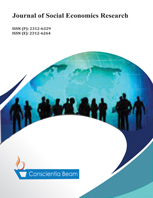The right literacy on the right performance: Does Islamic financial literacy affect business performance through Islamic financial inclusion?
DOI:
https://doi.org/10.18488/35.v11i3.3766Abstract
This study examines how Islamic financial literacy and Islamic financial access contribute to the performance of Halal MSMEs using knowledge-based theory. Micro, small, and medium-sized halal businesses (MSMEs) have an important role in the economy and the rapid growth of the world halal industry. The success of halal MSMEs depends on a number of factors, including the availability of Islamic funding and the financial literacy of Islamic finance. This study adopted a hierarchical regression model to examine quantitative data from a sample of 209 halal MSMEs' owners and managers in Malang Raya, Indonesia. The findings demonstrate that a high level of Islamic financial literacy can encourage Islamic financial inclusion, while inclusive Islamic financial institutions have a significant impact on MSMEs’ performance. In promoting inclusive Islamic finance, this study contributes by describing how Islamic financial inclusion affects the performance of Halal MSMEs and the level of society's knowledge on Islamic finance. Implications: Once MSMEs have a strong understanding of the Islamic finance principles, they are more likely to use these resources to increase access to Islamic finance; thereby leading to business growth and expansion. For this study, the halal industry within the food and beverage sector is a noteworthy production sector.

